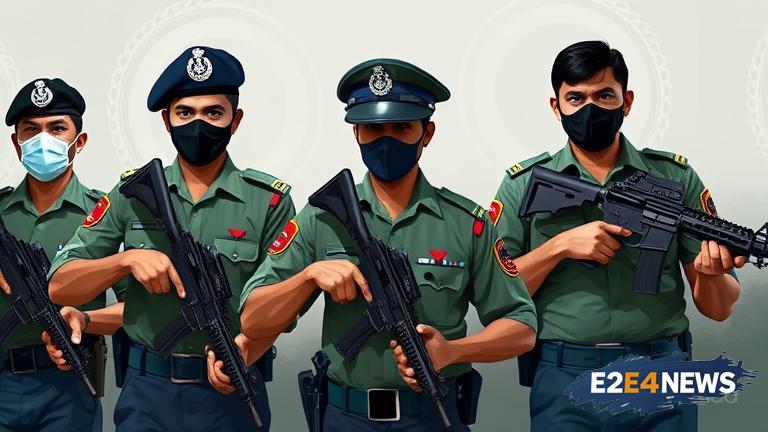Bangladesh has been grappling with a growing drug problem, with the country’s law enforcement agencies working tirelessly to combat the menace. Recently, the police launched a series of anti-drug operations across the country, resulting in the arrest of several individuals suspected of involvement in drug trafficking. The crackdown is part of a broader effort by the government to address the issue of drug abuse and trafficking, which has become a major concern in Bangladesh. According to reports, the police have seized large quantities of narcotics, including heroin, cocaine, and methamphetamine, during the operations. The arrests were made in various districts, including Dhaka, Chittagong, and Sylhet, and those detained are believed to be part of a larger network of drug traffickers. The police have also seized several vehicles and equipment used in the transportation and storage of narcotics. The anti-drug operations were carried out based on intelligence gathered by the police, which suggests that the drug trade is becoming increasingly sophisticated in Bangladesh. The use of technology, such as encrypted messaging apps and social media, has made it easier for drug traffickers to operate undetected. However, the police have been working to stay ahead of the traffickers, using innovative methods to gather intelligence and track down suspects. The government has also introduced new laws and regulations to combat drug trafficking, including stricter penalties for those convicted of drug-related offenses. Despite these efforts, the drug problem persists, and the police face significant challenges in their efforts to combat it. Corruption and lack of resources are major obstacles, and the police often struggle to gather evidence and build cases against suspected drug traffickers. Furthermore, the drug trade is often linked to other forms of organized crime, such as human trafficking and extortion, making it even more difficult to tackle. The police have also been working to raise awareness about the dangers of drug abuse, particularly among young people, who are often targeted by drug traffickers. The government has launched several awareness campaigns, including public service announcements and educational programs, to educate people about the risks of drug use. In addition, the police have been working with community leaders and local organizations to build trust and gather support for their efforts to combat the drug trade. The international community has also been providing assistance to Bangladesh in its efforts to combat drug trafficking, including training and equipment for law enforcement agencies. The United Nations Office on Drugs and Crime (UNODC) has been working closely with the Bangladesh government to provide technical assistance and support. The European Union has also been providing funding and expertise to help Bangladesh strengthen its law enforcement capabilities and improve its border security. The United States has also been providing assistance, including training and equipment, to help Bangladesh combat the drug trade. The efforts to combat drug trafficking in Bangladesh are ongoing, and the police are working tirelessly to disrupt the networks of drug traffickers and bring those responsible to justice. The government is also working to address the root causes of the drug problem, including poverty and lack of opportunities, which are often exploited by drug traffickers. The police are also working to improve their relationships with local communities, which is critical in gathering intelligence and building trust. The use of technology, such as social media and data analytics, is also being explored to help the police track down suspects and gather evidence. The police are also working to improve their forensic capabilities, including the use of DNA analysis and other techniques, to help build cases against suspected drug traffickers. Overall, the efforts to combat drug trafficking in Bangladesh are complex and multifaceted, requiring a coordinated approach from law enforcement agencies, the government, and the international community.
